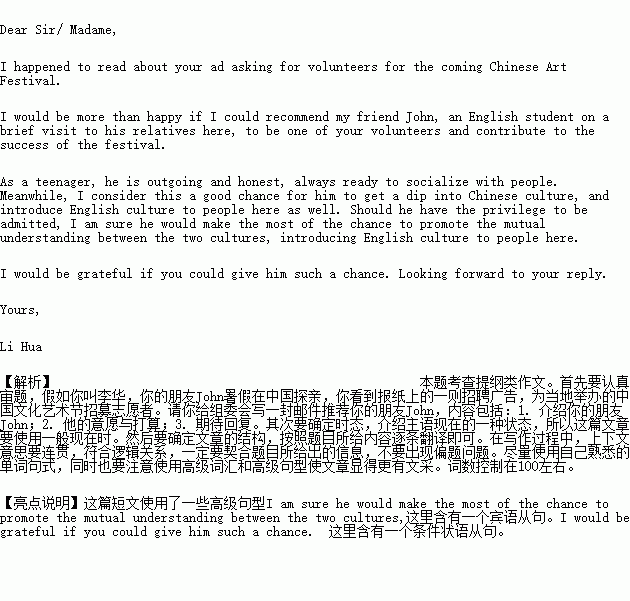题目内容
假如你叫李华,你的朋友John暑假在中国探亲,你看到报纸上的一则招聘广告,为当地举办的中国文化艺术节招募志愿者。请你给组委会写一封邮件推荐你的朋友John,内容包括:
1. 介绍你的朋友John;
2. 他的意愿与打算;
3. 期待回复。
注意:1. 词数100左右;
2. 可以适当增加细节,以使行文连贯;
3. 开头及结尾已为你写好,不计入总词数。
Dear Sir/ Madame,
I happened to read about your ad asking for volunteers for the coming Chinese Art Festival.
____________________________________________________________________________________________
____________________________________________________________________________________________
____________________________________________________________________________________________
____________________________________________________________________________________________
____________________________________________________________________________________________
____________________________________________________________________________________________
_________________________________________________________________
Yours,
Li Hua
 名校课堂系列答案
名校课堂系列答案
